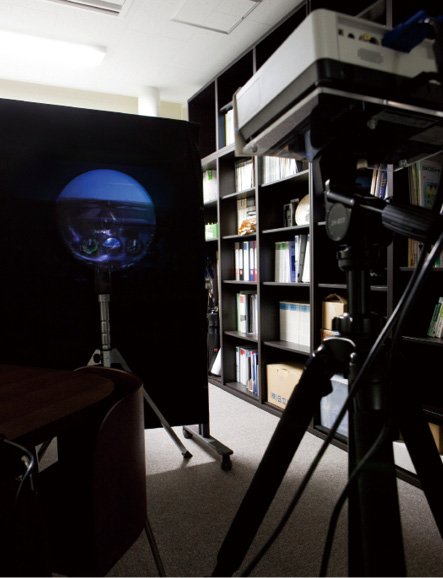
As of August, 2015
| Faculty/Department | Department of Human Media Systems Graduate School of Information Systems |
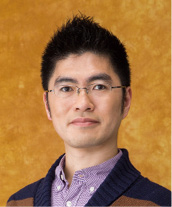
|
| Members | Takuya Nojima, Associate professor | |
| Affiliations | Information Processing Society of Japan (IPSJ); Human Interface Society; Virtual Reality Society of Japan; Robotics Society of Japan; Institute of Electrical and Electronics Engineers (IEEE), Association for Computing Machinery (ACM) | |
| Website | http://www.nojilab.org/ | |
Virtual reality (VR), flight simulator, augmented reality (AR), entertainment, human performance enhancement
Growing more sophisticated with each passing day, the world of virtual reality (VR) has already found applications across a wide range of fields, such as entertainment systems and personnel training systems for medicine and aeronautics. VR technologies have helped create the flight simulators that have become an essential part of pilot training.
Drawing on fields of study that deal with human characteristics, including physiological properties and functions such as behavior and sensory perception, the idea of virtual reality is being applied to generate lifelike artificial environments and intuitive, user-friendly human interfaces.
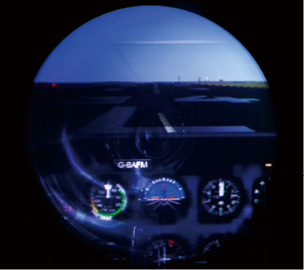
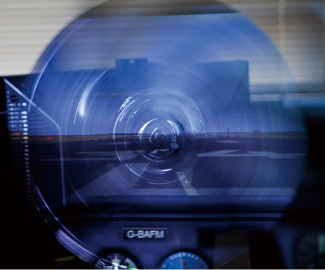
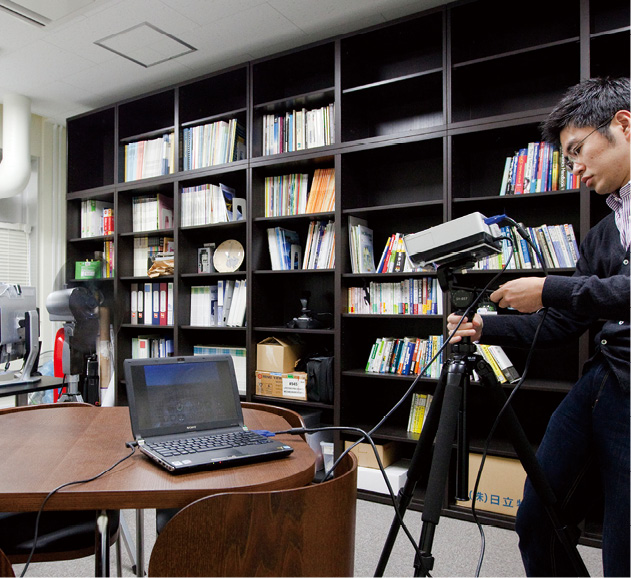
Our laboratory studies VR and augmented reality (AR). The latter field integrates information from VR with that of the real world. During his tenure at JAXA (Japan Aerospace Exploration Agency), Associate Professor Nojima studied flight simulators and aircraft flight, gaining extensive experience and expertise with VR and AR technologies and applications that ideally position him to pursue various researches at our laboratory.
In work related to the pilot interfaces that support flight control, he is currently engaged in research on a tactile information presentation system, a simple heads-up display (HUD) for small aircraft, and a head position and orientation estimation method for cockpits, with the goal of realizing head-mounted displays.
Other research targets entertainment applications. In one example, compressed air is used to divert a ball from its normal trajectory; in another, a shoe equipped with various sensors and information display devices is used as an information input device to create an interactive entertainment system that focuses on the foot.
The laboratory counts Associate Professor Nojima’s firsthand research experience at JAXA among its greatest advantages. During his days at JAXA, he gained considerable knowledge and expertise with flight experiments and validation testing, knowledge crucial to our simulation studies but difficult to acquire through conventional academic experience. The knowhow accumulated at JAXA is reflected in all aspects of his research since he joined the University of Electro-Communications.
In addition to applications in aeronautics research, Associate Professor Nojima has also studied AR for haptic sense since his early years in research, providing experience and expertise in developing AR medical applications. Using his knowhow on haptic AR, he plans to develop an AR-based system for assisted surgery on the pituitary gland.
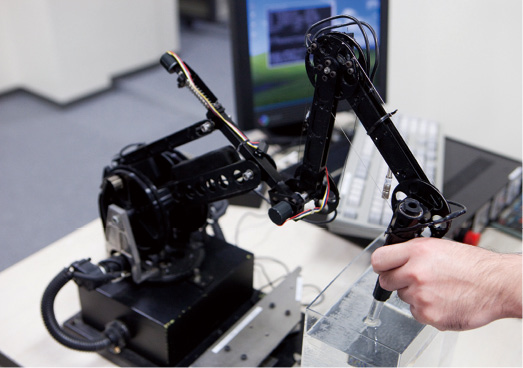
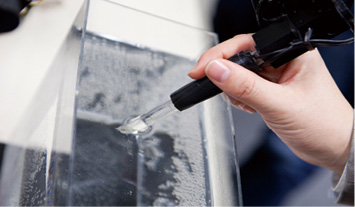
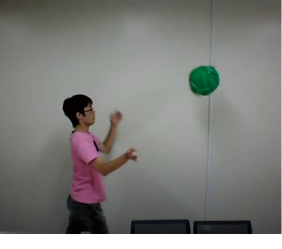
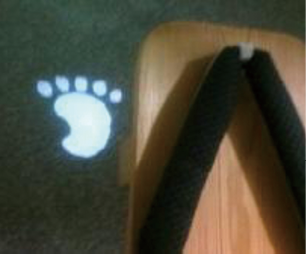
Of the many potential applications for VR, our laboratory intends to focus on applications in the sphere of human performance enhancement and entertainment. One example is the discovery that slight alterations in the layout of cockpit displays and instruments can dramatically facilitate aircraft control. This finding suggests changes in the human interface can enhance human performance. It may be possible to incorporate VR into human interfaces to enhance human performance and allow humans to perform tasks heretofore believed impossible.
With many entertainment systems based on VR already in existence, VR demonstrates abundant promise for entertainment applications, an area where rapid progress with VR is especially marked. Through our research, we hope to create sophisticated systems both for work and play that enrich human experience and human life.
